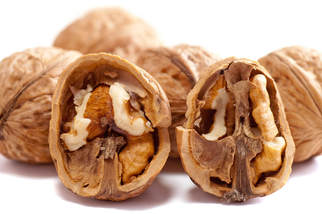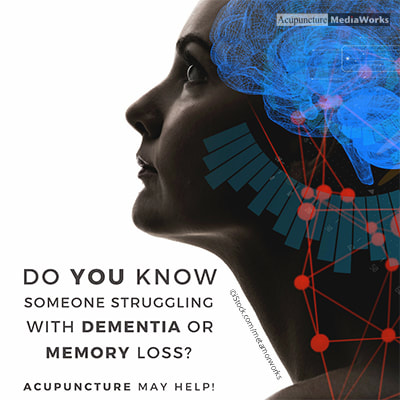 Ever had one of those days or weeks where you just can’t pull yourself out of bed in the morning? Or perhaps you just can’t say “No!” to the dessert tray. Regardless of the activity, willpower is what keeps some people disciplined. But it doesn’t make you a bad person if you have dessert with every meal, buy more shoes than you really need or take longer to get going in the morning. It just means your willpower isn’t strong. And just like any other habit, that can be changed. Willpower is like a muscle. It can be trained. Willpower also uses energy and is limited, just like muscles. Exerting self-control uses energy and over time, this energy can become depleted, making it easier to have the dessert, buy the shoes or sleep in past your alarm. So if you’re somebody who has difficulty with willpower, what can you do? Believe it or not, regular acupuncture treatments can increase your willpower. Acupuncture is just one subset of an ancient medical system known as Traditional Chinese Medicine (TCM). But it is by far, the most commonly known and used. In TCM, the word for will is zhi. In TCM, Zhi is associated with the kidneys. So if the energy of your kidneys is strong, the will is also strong, this is how acupuncture can help increase willpower. The needles used in acupuncture treatments actually stimulate the energy of the kidneys, thus increasing willpower. There are two sides of the coin for every organ in TCM, the yin and the yang. With regards to the kidneys and willpower, the yin is the substance that provides the drive, while also accepting the circumstances we’re given. And the yang aspect of will power is our expression of ourselves in terms of goals, vision, ambition and aspiration. When both yin and yang are in balance, will power is strong. However, fear frequently gets in the way of this balance and tends to override our purpose and goals. Why? Because fear is the mind’s way of keeping us safe and protecting us from harm. But anybody who has ever overcome adversity, can tell you fear probably never entered their mind or they did it regardless. All because of the willpower to attain their goals. The reason TCM works so well at addressing and correcting problems with willpower is because it addresses the body holistically. TCM looks at everything: the body, mind, environment and the emotions. This allows for treatments to be customized to the needs of the patient instead of a one size fits all approach. Customized treatments allow for better outcomes.  Many people like to add walnuts to food to add some zest and a little crunchy kick, but walnuts are much more than a flavor additive, as they are chock full of healthy properties and have been used in Asia as an overall health tonic and brain booster for years. Let’s take a nutty look at walnuts. Walnuts, otherwise known as Hu Tao Ren in Chinese medicine, are used as a kind of herbal remedy. In Chinese medicine, they look at the quality, temperature, flavor and color of a food to uncover certain elements that are beneficial to those who need to balance those qualities in their body. For example, the walnut is classified as “warming”. Warming foods tend to improve circulation and raise what is known as the yang qi. The yang is what is energetic, bright, outward, hot and moving (as opposed to yin, which is more inward, dark, still, cool and moist). Warming food is used in cold conditions; for example, if your stomach is cold from an overabundance of cool foods, you may have some digestive issues like gas and bloating due to slower digestion. In addition, the walnut is lubricating, moist and a bit greasy. This quality is helpful for lubricating the intestines and helping digestion and constipation. In Chinese medicine, the element of the food goes to certain organs and is beneficial for them; walnuts are said to benefit the lungs, large intestine and the kidneys specifically. Walnuts strengthen the lungs to help chronic cough, asthma and skin conditions (which are connected to the lung, according the Chinese medical principles). Walnuts also are a kidney tonic and help urination; in addition, kidneys are said to influence libido, fertility, the back and knees and the aging process. Walnuts have been used to help libido and fertility, a 2012 study in Asia showed males who consumed walnuts had improved sperm quality. In addition, walnuts are used for insomnia. They help raise serotonin levels, which promote feelings of well being and help people sleep better. Finally, in looking at food as medicine, foods that resemble a body part often treat that organ. What does the walnut resemble? Two lobes of the brain, the left and right hemisphere. It is commonly known that walnuts are an excellent brain food. Walnuts have been shown to have high levels of Omega-3, which is an essential fatty acid that helps brain and heart function. Walnuts are anti-inflammatory, have antioxidants and recent research has shown they may have anti-cancer properties and help diabetes due to beneficial fats. In addition, they have vitamin E, a powerful antioxidant, minerals and B vitamins. Walnuts help digestion and give a feeling of being full, so they aid in weight loss. It should be noted that in Chinese medicine, most food recommended for health is used in a formula that is unique for you and an overall treatment plan is created. Walnuts are not a panacea for health care, and it’s best not to self-diagnose; instead, visit an acupuncture provider to get a thorough diagnosis and a balanced formula right for you. Walnuts are not recommended in cases of fever, diarrhea or allergic reaction to nuts. If you are generally healthy and want a nice tonic, add a nice handful of nuts to not only perk up your food but also your body.  Dementia is defined as a chronic disorder of the mental processes caused by either brain injury or brain disease. Dementia is marked by memory disorders, personality changes and impaired reasoning. Dementia is not a specific disease though. Dementia is an overall term that describes a wide range of symptoms characterized by a decline in mental ability that becomes severe enough to interfere with daily life. This includes Alzheimer’s disease, vascular dementia, dementia with Lewy Bodies and even Parkinson’s disease. Current estimates of dementia sufferers vary considerably based on the age group. But the numbers for just one segment of the dementia spectrum is staggering. This is Alzheimer’s disease, which affects up to 5.3 million Americans. Worldwide, the prevalence of dementia, in any of its forms, affects 5 to 7 percent of adults age 60 or older. Most forms of dementia are the result of changes in the neural pathways, but the cause of these changes is still undefined in most cases, unless there was traumatic brain injury. Due to this inability to define the cause of the neural changes, the current treatment methods are also variable and definitely not reliable. Traditional Chinese Medicine (TCM) is a holistic medical system that includes the modalities of acupuncture, cupping, moxibustion and herbal formulations. Of all these modalities, acupuncture has been studied the most intensely. And this has led to studies showing acupuncture can help with the symptoms of dementia. There are many symptoms associated with dementia, aside from memory loss, including depression, anxiety and changes in sleeping patterns. Acupuncture can effectively treat depression and anxiety by balancing the hormones in the body. This will also help with insomnia, which is common in those experiencing dementia. Electroacupuncture has also shown promise for dementia patients. Electroacupuncture is the same as traditional acupuncture, but it adds a small current of electricity through the acupuncture needles, which increases the ability to break up blockages and get energy flowing properly. This is especially helpful for those suffering from vascular dementia, which occurs due to impaired blood flow that deprives oxygen and nutrients from the brain. Studies show the use of electroacupuncture can reduce behavioral deficits and improve memory over time. While there is no known cure for dementia, it is clear acupuncture can help those suffering from this debilitating disease. And when used in conjunction with common pharmaceuticals that treat dementia, the studies show even greater success. Contact us to see how we can help you or your family members who may be afflicted with dementia and memory loss.  A study published by the National Institute of Health looked at the management options for treating depression. Depression is one of the most prevalent symptoms of seasonal affective disorder. This study was conducted by the Canadian Network for Mood and Anxiety Treatments. They looked at multiple complementary and alternative methods for treating depression, including light therapy, acupuncture, exercise, yoga and natural health supplements like Omega 3 fatty acids and St. John’s Wort. The study concluded acupuncture is most commonly used as a third line of treatment for those seeking alternative methods to deal with depression, despite the fact it tends to be very effective. Seasonal Affective Disorder, also known as SAD, is really a form of depression that affects people worldwide. It is most commonly experienced during the fall and winter months. The symptoms of SAD include depression, hypersomnia, lethargy, difficulty concentrating, overeating, negative thoughts and decreased social interaction. Higher levels of anxiety are experienced at the end of the summer season as those who suffer from this ailment start to anticipate the coming months of less sunshine and increased symptomatology. Traditional Chinese Medicine and acupuncture are great choices for treatment of this condition. Traditional Chinese medicine (TCM) is very effective in treating depression, including Seasonal Affective Disorder. Modern medicine usually treats depression with antidepressants and psychotherapy regardless of the presenting symptoms. In contrast, TCM diagnoses each patient on an individual basis and treats the specific symptoms, while also addressing the root of the illness. TCM incorporates multiple modalities such as acupuncture, Chinese herbs, tuina massage, cupping and exercises like qigong to help restore balance to the body. Traditional Chinese medicine also treats the person holistically instead of treating mind and body separately. The theory behind treating depression using TCM, all revolves around the concept of Qi (pronounced “chee”). Qi is considered the vital energy that flows through the body and animates everything. When Qi is blocked or stagnant, illness can take root, either physically or mentally. Qi flows throughout the body on energetic pathways or meridians. Each energetic meridian is associated with an organ and each organ has its own emotion. Acupuncture releases endorphins. By doing so, it improves the flow of Qi throughout the body while eliminating blockages and bringing balance to the mind and body. Endorphins counter the symptoms of depression and allow the person to resume a normal life. Acupuncture and Traditional Chinese Medicine can help alleviate symptoms of depression while also attacking the root cause(s), thus bringing the body and mind back into balance. The body and mind are inseparable and should be treated as a whole, which is the approach used by acupuncturists. If you are suffering from Seasonal Affective Disorder or depression and are looking for a natural way of dealing with it, contact me to find out more about how acupuncture may be right for you. SOURCE: https://www.ncbi.nlm.nih.gov/pmc/articles/PMC4994794/ |
AuthorsRebecca M H Kitzerow is a Licensed Acupuncturist practicing in La Center, Washington. With over a decade of experience she has won 10 Nattie consumer choice awards from Natural Awakenings Magazine since 2014. Archives
July 2024
Categories
All
|
Photos from Hey Paul Studios, BeGreen_Studio, Pawel Pacholec, 1950sUnlimited, toulupaliaqaz, Joelk75, OnTask, Robert Gourley, cnu_sports, Mitya Ku, wuestenigel (CC BY 2.0), FootMassagez, 401(K) 2013, Mariana Heinz, @EdwardTerry, fishhawk, liverpoolhls, torbakhopper, Boemski, dolomitibl, Driscolltheque, Dave n Laura, Vaping360, MVWorks, Life Mental Health, MVWorks, mikefats, Scot Nelson, jfl1066, wZa HK, ruurmo, Guadalupe Cervilla, Army Medicine, GViciano, torbakhopper, adrigu, Saulo Cruz, Ben Cumming, marniejoyce, kcxd, JasonCorey, kanenas.net, Live to Create Photography, gm.esthermax, Unique Hotels Group, Zenspa1, mysiana, Tobias Lindman, Leader Nancy Pelosi, Kristoffer Trolle, swanksalot, Bill Selak, Parker Knight, stimpsonjake, Gedankensprudler, SuperFantastic, tonynetone, marniejoyce, JeepersMedia, Illusive Photography, 'Ajnagraphy', Iban Torras, scotted400, gtall1, dvanzuijlekom, BPPrice, Skley, torbakhopper, Renato Ganoza, anka.albrecht, QUOI Media, Public Domain Photos, Instant Vantage, Victor Tongdee, Free Grunge Textures - www.freestock.ca, sportEX journals, Nadja Tatar, angela n., marniejoyce, MVWorks, Karolina Kabat, Thomas Fisher Rare Book Library, UofT, ginnerobot, tracilawson, haven't the slightest, My Photo Journeys, Pierre Willemin, Florena_Presse, SuperFantastic, colindunn, zzkt, TraumaAndDissociation, ER24 EMS (Pty) Ltd., shixart1985 (CC BY 2.0), marniejoyce, Tomás Fano, freestock.ca ♡ dare to share beauty, Archives New Zealand, Jaykhuang, airdrie.m, Go-tea 郭天, OnTask, wuestenigel, focusonmore.com, Disney | ABC Television Group, Andrew Gustar, Didriks, ConstructionDealMkting, charlywkarl, barnimages.com, Lel4nd, runwaypilates, michaelstephanfotografie, McLevn, TraumaAndDissociation, eLife - the journal, Lars Plougmann, wuestenigel, shixart1985, boviate, davis.steve32, kevin dooley, @the.photoguy (insta), frederic.gombert, Feathering the Nest, Victor Tondee, shixart1985, wuestenigel, Joe K Gage, kennethkonica


 RSS Feed
RSS Feed
